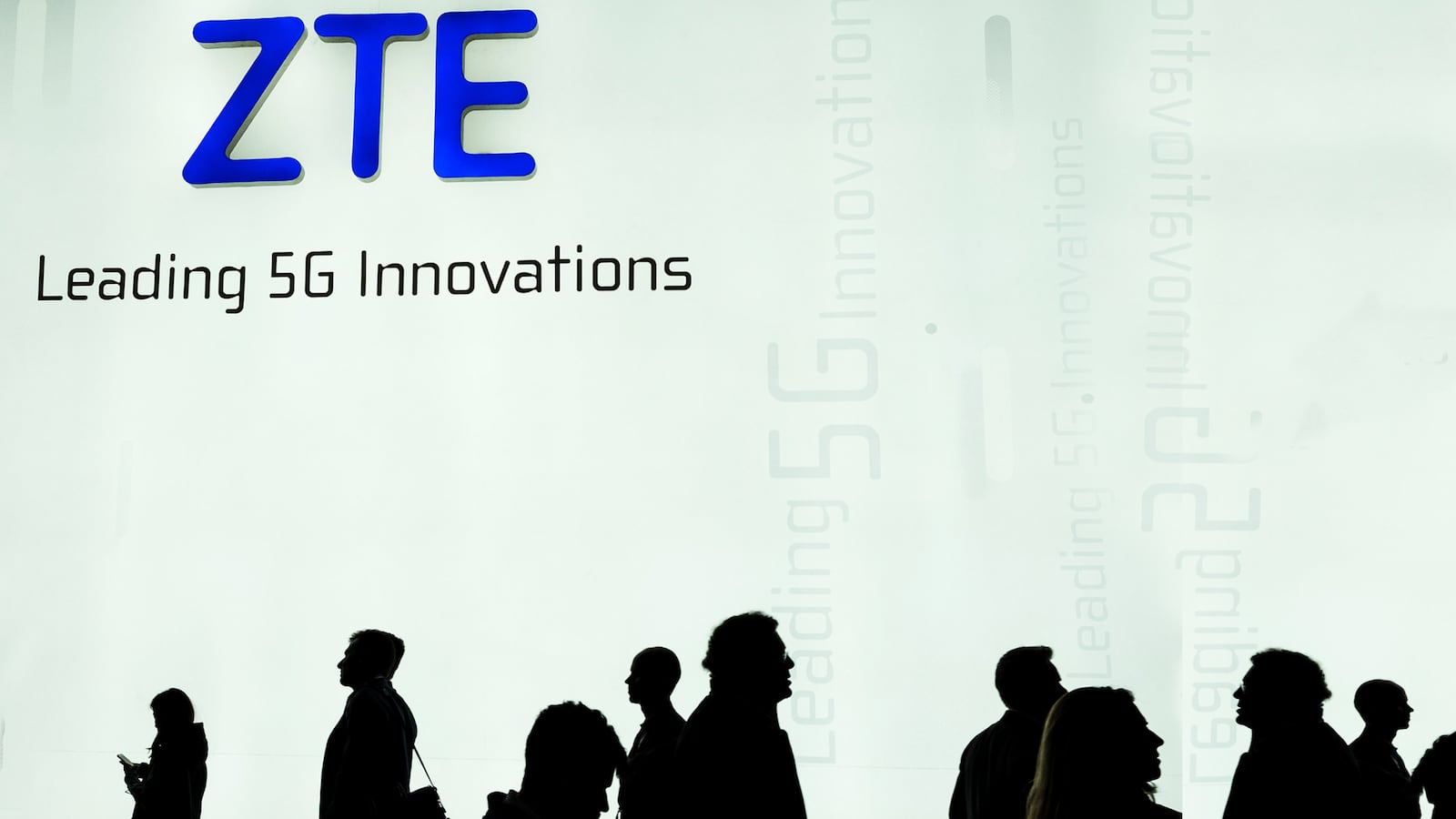A day after President Donald Trump announced he would consider easing penalties against a controversial Chinese electronics company, that company enlisted a Trump campaign veteran to make its case in Washington.
ZTE Corporation struck a contract with D.C. lobbying and public relations powerhouse Mercury Public Affairs on May 14, a day after Trump tweeted that he would consider lifting the penalties that had been imposed on the company as punishment for its violation of sanctions against Iran and North Korea.
The Mercury consultant working on the account is Bryan Lanza, a veteran of the Trump 2016 presidential campaign. Less than two weeks after Lanza’s work began, the Trump administration announced that it had reached a tentative deal to ease those penalties, a move criticized by lawmakers of both parties.
Many factors likely contributed to the resolution of the ZTE penalties, including efforts to leverage ongoing trade negotiations with China. But the swiftness of the Trump administration’s efforts to reach an agreement with the company—and the equally swift decision of that company to bring on a prominent Trumpworld figure—underscores the new world of influence peddling in Washington D.C. An infamously impulsive president, prone to bucking political norms and changing legislative priorities, has compelled companies to turn to K Street just to keep up.
Former aides to any president are a particularly lucrative draw in DC’s influence industry. And true to form, companies looking to win favor with President Trump have frequently turned to those he once employed. Lanza remains close with the White House and occasionally speaks with the president himself.
The Trump administration plan is a lifeline for ZTE. The Commerce Department’s decision to ban the use of American-manufactured parts in ZTE products, chiefly smartphones, prompted the company to announce that it would be forced to shut down global operations absent U.S. government relief.
ZTE hired Mercury by way of Hogan Lovells, a D.C. law firm that represents the phone company, according to documents filed with the Department of Justice under the Foreign Agents Registration Act. ZTE, through Hogan Lovells, will pay Mercury $75,000 per month for three months for its services.
The company’s DOJ filings say Mercury will “perform government relations and public affairs services, including setting up meetings with U.S. government officials related to U.S. sanctions” on ZTE.
Michael McKeon, a spokesman for Mercury, declined to go into more detail about its work, only telling The Daily Beast, ”Like any company of its size, [ZTE] faces various challenges and we are helping them from a public affairs perspective to manage those issues.”
But ZTE’s challenges are not exactly run-of-the-mill, and its tremendous financial stake in the outcome of a major U.S. government decision is just the sort of situation that requires a foray into Washington’s influence industry—especially one tailor made to an administration that values loyalty and insiderism.
“Obviously the Chinese government and ZTE want something from the U.S. government,” said Brendan Fischer, the director of federal reform programs at the Campaign Legal Center. “One way of getting what they want is hiring well-connected former staffers as lobbyists.”
“Foreign entities hiring politically-connected lobbyists who have just come through the revolving door is fairly standard practice,” Fischer added, “but this administration presents all sorts of new opportunities for influence-peddling.”
This story has been updated with additional reporting.





